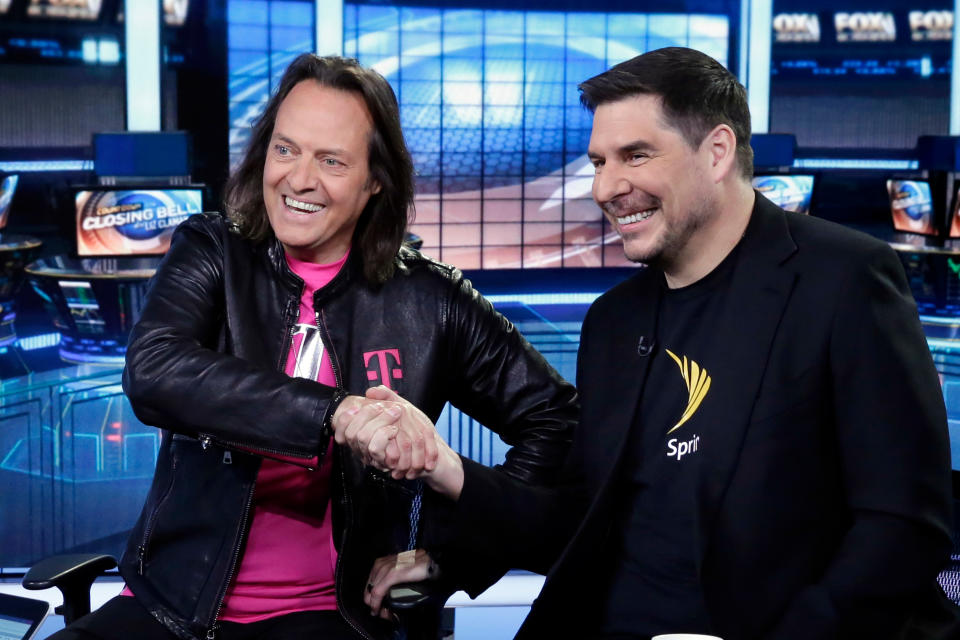Why the Time Warner deal could be 'uniquely significant' for AT&T's CEO
This month, a federal judge in Washington, DC, is expected to hand down a decision in one of the most closely watched antitrust trials in decades, in which the U.S. is suing to block AT&T’s (T) $85 billion acquisition of Time Warner (TWX).
This isn’t a typical merger trial, in part because it’s a vertical merger, a type of deal that doesn’t involve direct competitors and isn’t usually challenged by the government. This trial might not have a typical outcome, either, according to Christopher Sagers, a professor specializing in antitrust law at Cleveland-Marshall College of Law.
In many cases, if a judge kills a deal, companies will abandon their merger plans rather than appeal the decision because of the costs of keeping a pending deal on hold. That’s the main reason there’s virtually no recent Supreme Court precedent on mergers in the U.S. But the government’s fight over the AT&T/Time Warner deal could be different from other cases in that respect.

A ‘uniquely significant’ deal for AT&T’s CEO
In its complaint, the U.S. government contends that AT&T, which owns DirecTV, would “use its control of Time Warner’s popular programming as a weapon to harm competition” if the deal were allowed to go through. AT&T would force competing TV providers to pay more for Time Warner’s networks — ultimately hindering consumers’ choices and costing them more money, the U.S. alleges.
Unlike with other deals, the odds of an appeal are actually “pretty high” if the Justice Department wins its case, partly because the deal is “uniquely significant” to AT&T CEO Randall Stephenson, according to Sagers.
The AT&T CEO was at the helm of the telecom giant back in 2011 when it abandoned its plans to buy T-Mobile (TMUS) after the Obama administration fought the merger. That deal led AT&T to report a $6.7 billion loss for the fourth quarter of 2011, mainly because of breakup fees it was forced to pay to its low-cost competitor. Following the deal’s implosion, T-Mobile “thrived quite nicely,” according to Sagers, suggesting that the government did the right thing by blocking the deal. T-Mobile is currently the third-largest wireless carrier in the U.S. and ended the first quarter of 2018 with 74 million customers. (T-Mobile and Sprint now have their own pending merger.)

“I think he would be in pretty bad trouble with his board if this one fails too, especially given that a lot of embarrassing moments followed it throughout its pendency,” Sagers said.
Those uncomfortable moments included the revelation that AT&T had paid Michael Cohen, President Donald Trump’s personal lawyer, for advice on working with the administration. Of course, AT&T ended up with an antitrust lawsuit on its hands despite paying for Cohen’s insights. Moreover, the telecom giant associated itself with an attorney known primarily for making payments to Stephanie Cliffords, aka Stormy Daniels, a pornographic movie actress who claims she had an affair with the president.
‘His questioning was much more hostile to the government’
Despite that bad press, some experts believe that AT&T will prevail in this case, in part because of Judge Richard Leon’s sharp questioning of the government’s star witness, Carl Shapiro, a business professor at UC Berkeley and former Justice Department official. Shapiro testified that the merger would likely “lead to an increase in fees that Turner is able to charge.” That testimony spurred Leon to comment, “I look forward to re-reading your testimony. I’m not sure I get it.”
John Kirkwood, an antitrust professor at the Seattle School of Law, told Yahoo Finance that Leon seemed more sympathetic to AT&T’s witnesses than the government’s. “His questioning was much more hostile to the government. That doesn’t prove anything, but it’s often a telling sign,” Kirkwood said. He added: “I suppose if you made me predict I’d say the government would probably lose.”
This is not a sure thing for AT&T, though. One of the nation’s most prominent antitrust experts, Herbert Hovenkamp, recently told The New York Post that the AT&T/Time Warner deal is in trouble. And Sagers, the Cleveland-Marshall College of Law professor, told Yahoo Finance that he also believes the government will win based on its theories that the deal would harm consumers.
The government, for its part, argued that the harm consumers face from the deal is not “theoretical.”
“AT&T/DirecTV would hinder its rivals by forcing them to pay hundreds of millions of dollars more per year for Time Warner’s networks, and it would use its increased power to slow the industry’s transition to new and exciting video distribution models that provide greater choice for consumers,” the government noted in its complaint. “The proposed merger would result in fewer innovative offerings and higher bills for American families.”
If the government convinces a judge of this argument, AT&T may not abandon its Time Warner deal without putting up more of a fight. Leon has said he’ll issue his opinion by Tuesday, June 12.
Erin Fuchs is deputy managing editor at Yahoo Finance.
Read more:
7 years ago, Sprint fought a ‘brazenly anti-competitive’ telecom deal
AT&T Time Warner suit could be the start of a more aggressive antitrust era
Why it’s a ‘big surprise’ that Trump’s DOJ may fight Time Warner deal
